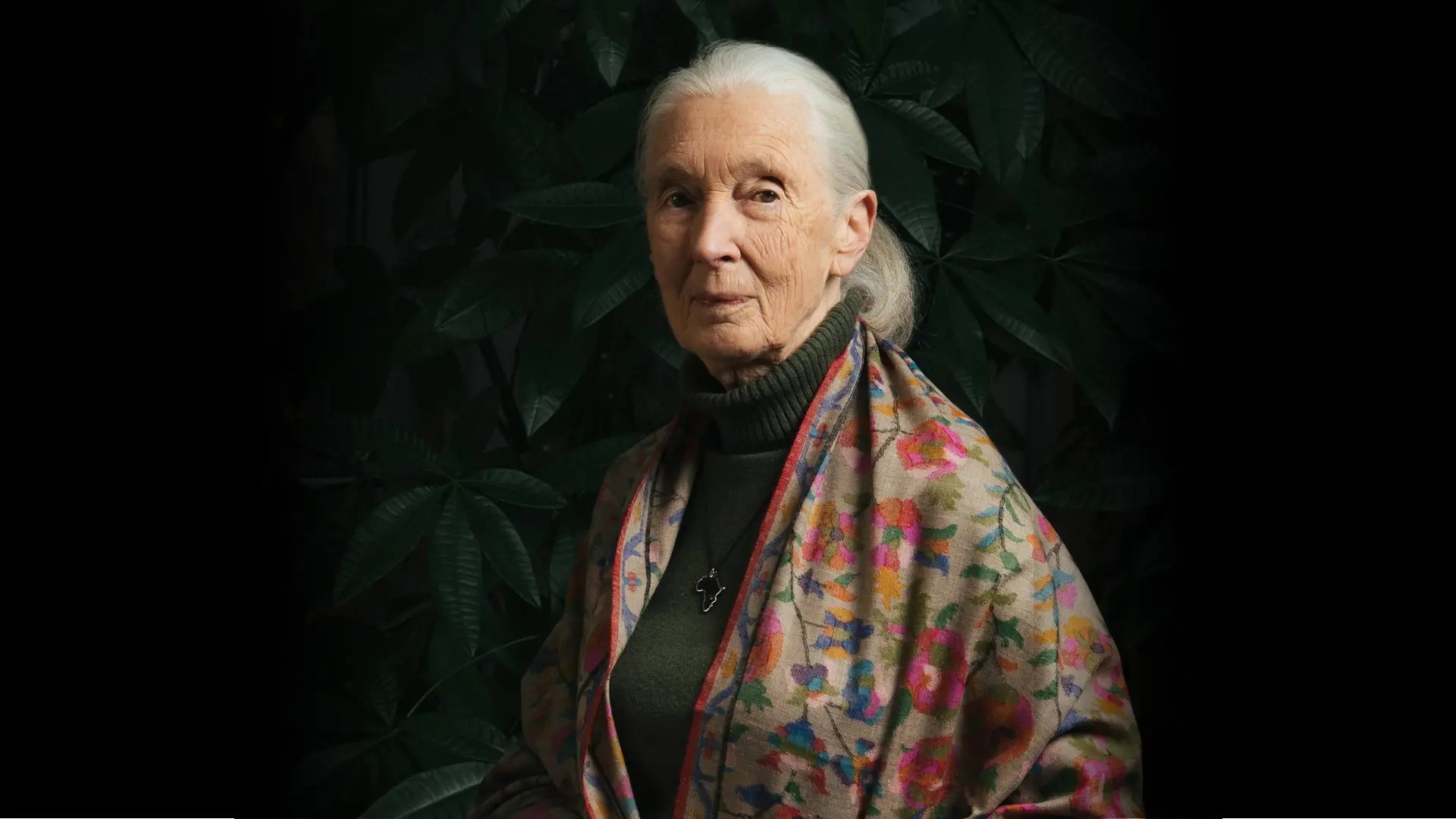Dr Jane Goodall, DBE, Founder of the Jane Goodall Institute, UN Messenger of Peace and world-renowned ethologist, conservationist, and humanitarian, has died at the age of 91 of natural causes, the Jane Goodall Institute has announced.
“She passed away in her sleep,” the organisation said in a statement.
Known around the world for her 65-year study of wild chimpanzees in Gombe, Tanzania, Dr Goodall revolutionised the field of primatology and forever changed the way humans understand the animal kingdom. In the latter part of her life, she expanded her focus and became a leading global advocate for human rights, animal welfare, species protection, and environmental sustainability.
The United Nations paid tribute to her enduring influence, writing: “Today, the UN family mourns the loss of Dr Jane Goodall. The scientist, conservationist and UN Messenger of Peace worked tirelessly for our planet and all its inhabitants, leaving an extraordinary legacy for humanity and nature.”
UN Secretary-General António Guterres said he was “deeply saddened” by her passing. “She leaves an extraordinary legacy for humanity and our planet. I’m grateful for her lifelong environmental protection efforts and her strong support for the United Nations,” he said.
UNESCO Director-General Audrey Azoulay told AFP: “Dr Jane Goodall was able to share the fruits of her research with everyone, especially the youngest, and to change our view of great apes.”
A Lifelong Fascination with Nature
Born Valerie Jane Morris-Goodall in London in 1934, she was the eldest daughter of businessman and racing car driver Mortimer Herbert Morris-Goodall and writer Margaret Myfanwe Joseph. From childhood, she was captivated by animals and dreamt of travelling to Africa to study and write about them.
Having worked as a waitress to save enough money for a sea passage to Kenya, she was advised to meet renowned palaeontologist Dr Louis Leakey, who hired her as his secretary at the National Museum in Nairobi. Recognising her patience and keen observational skills, Leakey invited her to accompany him and his wife Mary Leakey to Olduvai Gorge, Tanzania, on a fossil expedition.
In 1960, Leakey sent Goodall to study chimpanzee families in the Gombe Stream forest. She later said she would have “studied any animal,” but felt deeply fortunate to have been given the opportunity to work with humankind’s closest living relatives.
On 14 July 1960, she arrived in Gombe, where she made her groundbreaking discovery that chimpanzees make and use tools — a finding that redefined humanity’s understanding of intelligence and “what it means to be human.”
Despite having no formal university degree at the time, Leakey arranged for her to pursue a PhD at Newnham College, Cambridge. Her doctoral thesis, The Behaviour of Free-living Chimpanzees in the Gombe Stream Reserve (1965), marked the start of a lifelong research project that continues to this day through the Jane Goodall Institute.
From Scientist to Global Advocate
Dr Goodall’s research evolved into a global mission for conservation and compassion. Over the decades, she became a powerful voice for ethical treatment of animals, biodiversity preservation, and sustainable development.
In 1977, she founded the Jane Goodall Institute (JGI) to support ongoing research at Gombe and to advance community-centred conservation efforts. The Institute now operates in 25 countries.
In 1991, she launched Roots & Shoots, a humanitarian and environmental education programme for young people. What began with 12 students in Dar es Salaam has grown into a global movement active in more than 75 countries, empowering young people to make positive change in their communities and the natural world.
Her message of hope and activism was simple yet profound: “Every single one of us makes a difference every day — it is up to us as to the kind of difference we make.”
In 2017, she founded the Jane Goodall Legacy Foundation to secure the future of her life’s work.
Awards, Honours and Publications
Dr Goodall authored more than 27 books for adults and children, including the acclaimed In the Shadow of Man (1971), The Chimpanzees of Gombe (1986), and The Book of Hope: A Survival Guide for Trying Times (2021), which has been translated into more than 20 languages. Her life and work were documented in numerous films, including two major IMAX productions and the Emmy Award-winning Jane (2017).
In recognition of her achievements, she received some of the highest honours in science and humanitarian work. In 2002, she was appointed a United Nations Messenger of Peace, and in 2004, she was made a Dame Commander of the Order of the British Empire (DBE) by Queen Elizabeth II.
Her other accolades include the United States Presidential Medal of Freedom, the French Légion d’honneur, Japan’s Kyoto Prize, the Benjamin Franklin Medal in Life Science, the Gandhi-King Award for Nonviolence, the Medal of Tanzania, and the Tyler Prize for Environmental Achievement.
In 2019, National Geographic launched Becoming Jane, a major travelling exhibition chronicling her life and research, which continues to tour internationally.
Personal Life and Enduring Legacy
Dr Goodall was married twice. Her first husband, Baron Hugo van Lawick, was a Dutch wildlife photographer working for National Geographic. They married in 1964 and had one son, Hugo Eric Louis van Lawick, affectionately known as “Grub.” The couple divorced in 1974.
She later married Derek Bryceson, a Tanzanian Member of Parliament and former Director of National Parks, who died in 1980.
Though she travelled nearly 300 days a year advocating for conservation, her home remained in Bournemouth, England, where her family lived for generations. She is survived by her son, Grub; three grandchildren — Merlin, Angel, and Nick; and her sister, Judy Waters, whose family played a vital role in supporting her throughout her career.
Dr Goodall’s legacy continues through ongoing research at Gombe, the Tacare community conservation programme, the Chimp Eden sanctuary in South Africa, the Tchimpounga sanctuary in the Republic of the Congo, and the Roots & Shoots movement, which continues to inspire millions of young people worldwide.
“She reminded humanity that science and empathy must go hand in hand,” the Jane Goodall Institute said. “Her voice for the planet will echo for generations.”



